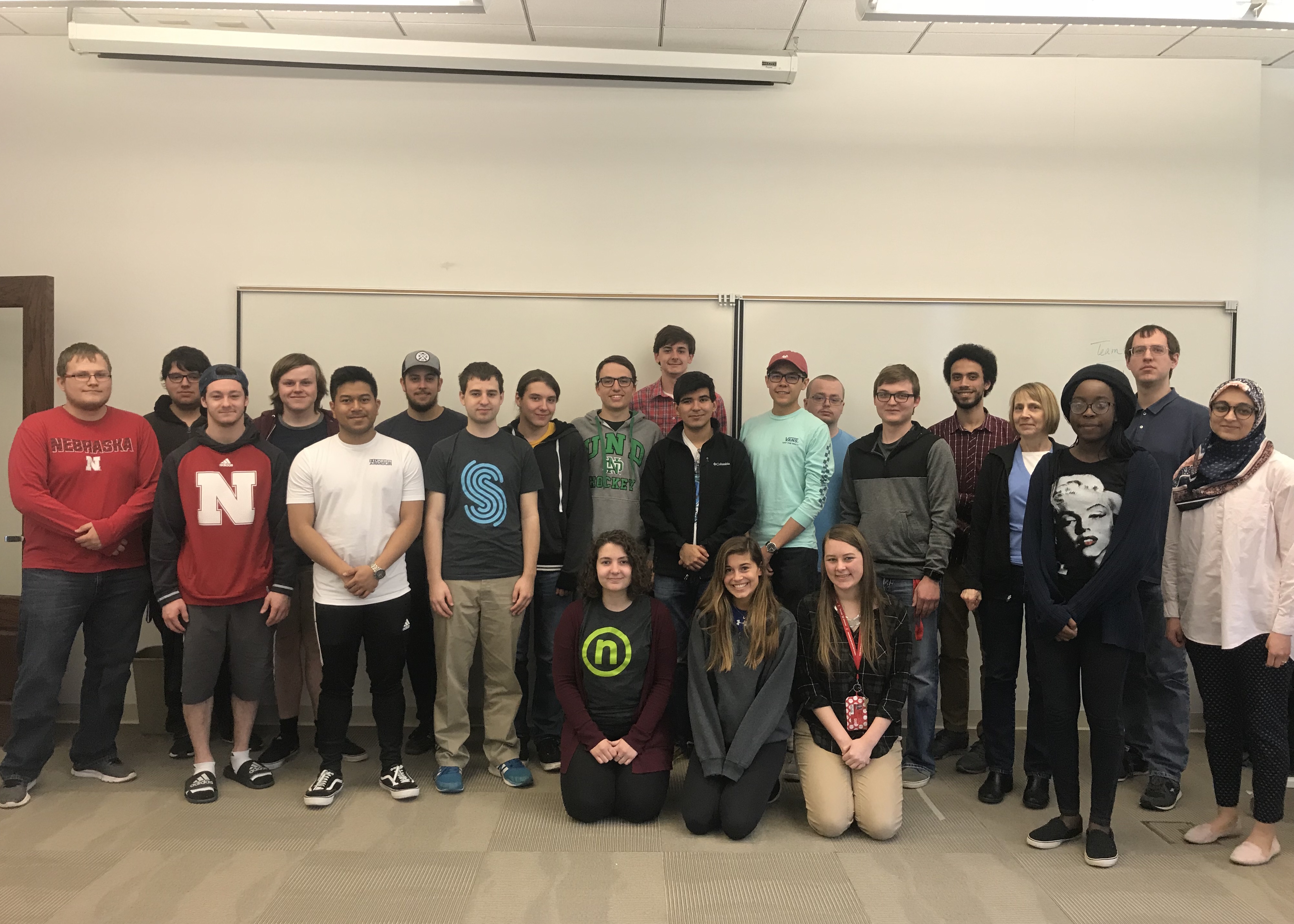May 07, 2020
By Victoria Grdina

When the Department of Computer Science and Engineering introduced its software engineering major four years ago, faculty wanted to offer students more than just a new degree option. They wanted to build a unique program that taught software engineering in a whole new way.
The University of Nebraska–Lincoln’s inaugural cohort of software engineering students graduated from that program on May 9. Director of Software Engineering Suzette Person says the major has developed into what faculty envisioned thanks to its first class of students.
“This first cohort is special because they’re really what helped form the major and confirm that we were on the right track,” Person said. “As far as we know we’re still the only program that teaches software engineering this way, and I really appreciate this group’s validation that it has actually worked.”
Nebraska’s software engineering major offers students a hands-on educational experience that focuses on practical application and introduces software engineering concepts in the first semester. While most other programs only begin to cover those principles in advanced courses, Nebraska students spend all four years building on their knowledge base and developing their skills.
Pioneering this new approach required faculty to create their own curriculum from scratch.
“There were no models, no materials, no textbooks. They weren’t written for students without a background in computing and they weren’t written for freshmen,” Person said. “We’ve developed our own textbook, the core courses, structured weekly labs, projects for each semester. All the materials were developed as we were rolling out the courses.”
Faculty designed courses to emulate industry work in every way from tools to teamwork. Projects would equip students with the necessary technical skills and knowledge to enter the technology field as well as the communication and interpersonal skills to help them thrive in it.
“The software engineering program is unique in the lengths it goes to be true to the real world,” said senior Brooke Lampe. “It emphasizes non-code artifacts and behaviors. From my two internship experiences, I have found that it is highly beneficial to understand the development cycle, to be able to write documentation and generate presentations simplified for non-technical people, and to be able to participate effectively in code reviews.”
That real-world work has prepared students well for opportunities outside the classroom. Prior to graduation, students are required to complete not just one but two years of Senior Design capstone courses as well as one internship, guaranteeing them plenty of professional experience prior to earning their diploma.
“In my first internship, my manager was shocked and impressed that I had automatically written tests that went along with my work,” said senior Jasmine Boyer. “He was able to spend less time explaining things to me and more time teaching me skills.”
With feedback from the first class that this unique approach to teaching software engineering has provided the enriching educational experience faculty initially envisioned, the department plans to continue to build a successful program based on the positive feedback of its successful students.
“When I first changed my major to software engineering while signing up for classes, I wasn’t entirely sure what to expect,” said senior Hallie Hohbein. “I knew I enjoyed coding, but I really had no idea what it meant to be a software engineer. This program has not only taught what it means to be a software engineer, but also how to become a good one.”